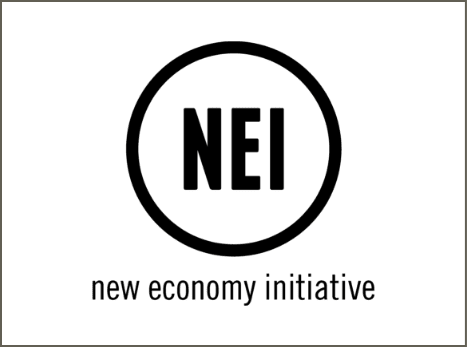Small, underserved businesses have persevered against the odds for decades without structural supports like outside financing.
What is an underserved small business?
- A small workforce
- Owned by people of color and women
- Led by founders that are traditionally disconnected from business resources and capital (“underserved entrepreneurs”)
- Seeking to restart, reach sustainability, and/or grow
- Located in an underserved community
In 2018, NEI made a conscious decision to invest in supports for underserved small businesses with at least two employees and not more than 50 (includes direct employees and 1099 independent contractors) because 1) it wanted to focus on growing jobs and helping business owners be in a position to employ and 2) it feared resources would be depleted too quickly if it invested in sole proprietorships, even though the vast majority of black-owned businesses resided in that category.
An underserved community is a historically neglected community that has failed to receive the same economic opportunities as their preferential counterparts. Because of systemic neglect, racism and structural barriers, underserved communities typically have more residents with low incomes, more women and more people of color.
NEInsight From startups to been-ups
NEI began in 2007 with philanthropic dollars intended to diversify the economy by creating a culture of entrepreneurship and innovation, initially focused on the startup perspective and high-growth projects. But it learned over time that older businesses 1) still needed access to many supports, 2) were critical to the economy, and 3) were still led by entrepreneurs.
NEI’s director, Pam Lewis: “We thought it was important to also acknowledge established businesses. The whole narrative around entrepreneurship was always around startups, always around tech. The idea in 2014 of a small business competition, which we called NEIdeas, was really the first demonstration of our focus on ‘been ups’.”
Learn more
With philanthropic support and practical assistance, these been-ups were in a position to grow jobs and, in turn, strengthen neighborhood economies. NEI gained traction recognizing all types and stages of business development, both startups and been-ups.
DIVE DEEPER: Read about how NEIdeas provided grants directly to existing small businesses across every zip code in Detroit, Hamtramck and Highland Park with ideas for growth.
How to find and identify small businesses needing support
Awarding free, no-strings grant capital — and skills development for running and growing a business — is an effective strategy for identifying underserved small businesses and creating equitable access.
- Design a business growth idea challenge that’s fair, inclusive and simple to enter (with no additional requirements, like tax returns)
- Make sure the challenge application is accessible to non-English speaking business owners (published in languages spoken in given pockets of a city)
- Create a process that’s physically accessible (so if a business owner doesn’t have a computer or email, she/he can still apply)
- Expect skepticism and suspicion about the validity from the potential applicants.
- Build a network of ambassador organizations (trusted connectors to local businesses) for inclusive outreach to small businesses
- Hit the streets and host information sessions (ambassador network)
- Award business growth through funding
- Celebrate awardees through celebrations to elevate the role of small businesses
- Share their stories in the media to inspire others
- Create a dataset about small businesses and their needs for growth (winners and those who didn’t win)
- Connect all entrants of the competition – and business owners – to a wider network of business support and capital to help them strengthen and grow
- Repeat the process, recruiting more small business owners to apply; use ads featuring past winners in local print market, on city buses and billboards and on local radio stations
DIVE DEEPER: Read about NEI’s small business growth competition, NEIdeas, and what the $2.6 million invested meant to underserved small businesses in Detroit.
NEInsight NEIdeas support for existing small businesses
In 2014, NEI launched NEIdeas to provide grants directly to existing small businesses across every zip code in Detroit, Hamtramck and Highland Park with ideas for growth. All three cities had poverty rates over 40 percent.
This program had a low barrier to entry for the application process and all materials were translated in five languages. Neighborhood “ambassadors” promoted the program; ambassadors were people associated with churches, community organizations, and other familiar organizations that became NEI information hubs. Any small business owner that applied, whether receiving an award or not, was encouraged to participate in practical assistance offerings to help stabilize and strengthen their companies and, by extension, the neighborhoods in which they existed.
The competition lasted five years, entertained more than 3,000 applications, and awarded $2.16 million in grants to 144 businesses.
Learn more
With philanthropic support and practical assistance, these been-ups were in a position to grow jobs and, in turn, strengthen neighborhood economies. NEI gained traction recognizing all types and stages of business development, both startups and been-ups.
DIVE DEEPER: Read about how NEIdeas provided grants directly to existing small businesses across every zip code in Detroit, Hamtramck and Highland Park with ideas for growth.
How to frame out a system focused on who you’re serving
If it is a community’s goal or philanthropy’s goal to strengthen struggling neighborhoods, support for small business owners must be part of the mix.
Essential to this approach, the support system must:
- Understand the gaps
- Set principles
- Share principles
- Create feedback loops
- Share learnings around solutions
- Stay focused; don’t get pulled in other directions
NEInsight How NEI identified and closed gaps for underserved small businesses in metro Detroit
NEI learned about the needs and characteristics of small businesses through:
Research
Finding out who was really serving neighborhood small businesses – who they were turning to for help; NEI looked at neighborhood organizations that provided support in three areas: capital, place-based and general.
Learn more
Supporting community-based organizations to expand/enhance support for underserved small business owners; NEI worked to “broaden the net” beyond the obvious, and supported bookkeeping services, business sector experts, and Community Development Organizations (i.e., the Accounting Aid Society, FoodLab, Osborn Neighborhood Alliance, and other CDOs). Key to this strategy was building on strengths and assets.
Connection-building
Requiring gathering, learning and collaborative work; NEI convened those funded through a Worktable with the goal of organizations getting to know each other, enabling referrals between organizations. In turn, this expanded points of entry for small business owners seeking expertise or capital.
DIVE DEEPER: Read about how NEI’s Neighborhood Business Initiative Worktable removed business support organizations from their silos to work together on projects that supported small business growth in neighborhoods.
Related case studies and resources
What’s next
Finding business support organizations




